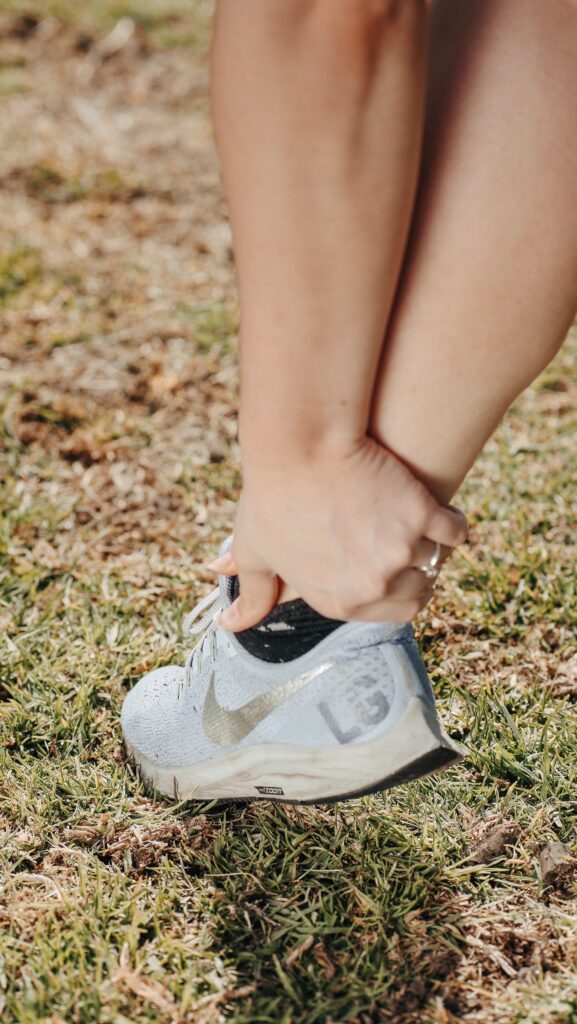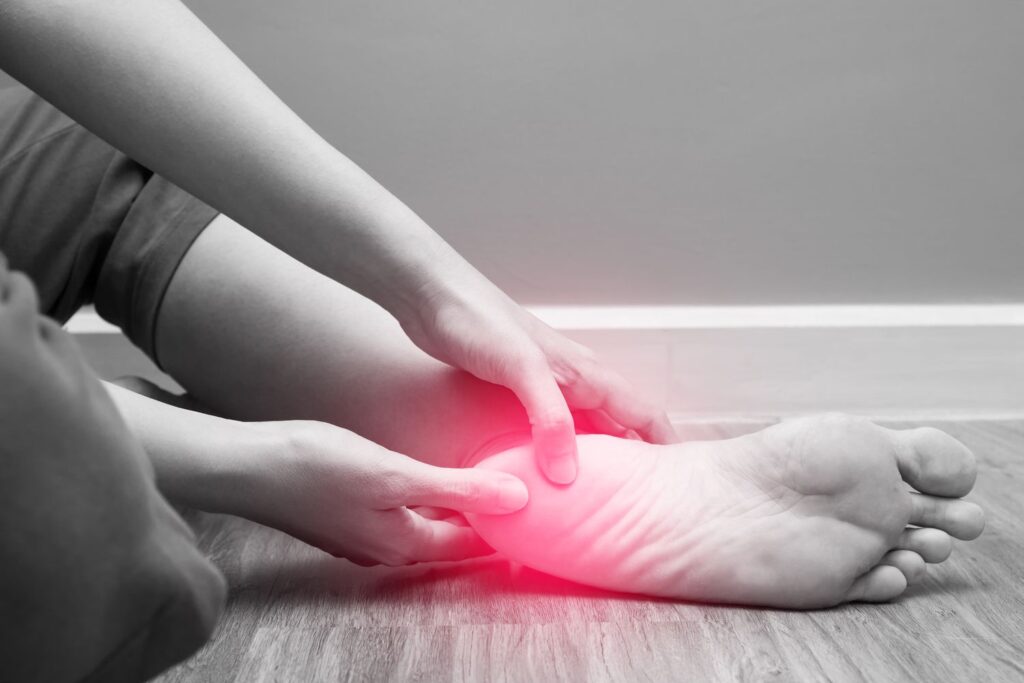Causes of heel pain
- Plantar Fasciitis: The leading cause of heel pain, plantar fasciitis, occurs when the plantar fascia, a thick band of tissue connecting the heel bone to the toes, becomes inflamed. This condition is often associated with heel spur syndrome, where a bony spur develops on the heel bone.
- Stress Fractures: Repetitive stress on the foot can lead to tiny cracks in the bones, known as stress fractures. These fractures commonly occur in the heel bone or the metatarsal bones, causing significant discomfort and limiting mobility.
- Tendonitis: Inflammation of the tendons in the foot can result in heel pain. Achilles tendonitis, for example, affects the tendon connecting the calf muscles to the heel bone and is a frequent cause of discomfort.
- Arthritis: Certain forms of arthritis, such as rheumatoid arthritis and osteoarthritis, can affect the joints and cause heel pain. Inflammation and degradation of the joints in the foot contribute to discomfort and stiffness.
- Nerve Irritation: Irritation or compression of nerves in the foot, such as the tibial nerve or the nerves in the region of the ankle, can manifest as heel pain. Conditions like tarsal tunnel syndrome may contribute to this type of pain.


Impacts of heel pain
Heel pain not only affects the foot but can have far-reaching consequences throughout the body. Here’s how heel pain can impact other areas:
- Gait Alterations: The discomfort caused by heel pain often leads to modifications in the way we walk, known as gait alterations. These changes can put additional stress on the knees, hips, and lower back, potentially resulting in pain and misalignment in these areas.
- Reduced Mobility: Heel pain can limit our ability to engage in physical activities, leading to a sedentary lifestyle. Reduced mobility can further contribute to muscle weakness, joint stiffness, and weight gain, negatively impacting overall health and well-being.
- Psychological Effects: Chronic heel pain can take a toll on mental health, causing frustration, stress, and even depression. The constant discomfort and limitations imposed by heel pain can significantly affect daily activities and overall quality of life.
Treatment options for heel pain
Fortunately, numerous treatment options are available to alleviate heel pain and promote healing. Here are some commonly recommended approaches:
- Rest and Ice: Providing adequate rest to the affected foot and applying ice packs can help reduce inflammation and provide temporary relief.
- Stretching and Physical Therapy: Specific stretching exercises and physical therapy techniques can improve flexibility, strengthen the foot muscles, and promote healing.
- Orthotic Devices: Customized orthotic inserts, arch supports, or heel cups can provide additional support and cushioning, alleviating pain and reducing strain on the affected area.
- Medications: Over-the-counter pain relievers or anti-inflammatory drugs may be recommended to manage discomfort and reduce inflammation.
- Footwear Modifications: Wearing well-fitting shoes
Below are some recommended foot wear:
Men’s athletic shoes – medium to extra wide
Don’t let your heel pain ground you for getting some of the best benefits of hiking


